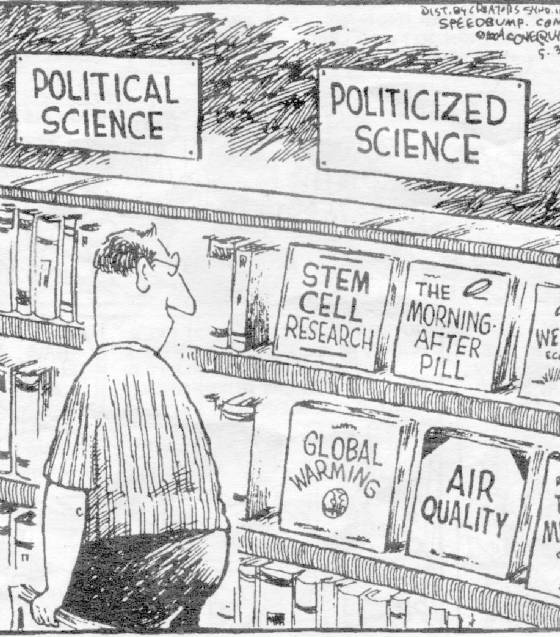Reports: Policy, Not Science, Drives Bush Administration
BENJAMIN RADFORD
A report by a group of more than sixty influential scientists,
including twenty Nobel laureates, asserts that the Bush administration has systematically distorted scientific facts
and findings to support its policy goals. The report, “Scientific Integrity in Policymaking,” was written by Seth
Shulman and issued on behalf of the Union of Concerned Scientists. The 38-page report (available at www.ucsusa.org) states:
“A growing number of scientists, policy makers, and technical specialists both inside and outside the government
allege that the current Bush administration has suppressed or distorted the scientific analyses of federal agencies to
bring these results in line with administration policy.”
The findings cover many policy areas, including environmental
protection, abstinence/sex education, and pre-war claims that aluminum tubes found in Iraq were to be used for enriching
uranium—and thus creating nuclear weapons. In response to an EPA report on the effects of climate change, the report
charges that “the Bush administration has sought to exaggerate uncertainty by relying on disreputable and fringe-science
reports and preventing informed discussion on the issue.”
While acknowledging that previous presidents also engaged
in distorting and manipulating science, the report concluded that the Bush administration’s efforts to do so were
“unprecedented.” The White House largely dismissed the report as a politically driven collection of
unrelated incidents that do not constitute a pervasive anti-science bias.
Still, many of the report’s findings have been independently
verified. One high-profile example, Iraq’s aluminum tubes, was the subject of a 60 Minutes II segment titled
“The Man Who Knew” (February 4, 2004). It featured Houston Wood, a senior scientist at Oak Ridge Laboratories
and an authority on uranium enrichment by centrifuge. Wood and virtually all other scientists concluded that there
was no link between the tubes and a nuclear program, yet their findings were at odds with Bush administration claims.
While a CIA report advocated the administration’s
view that the tubes were to be used for developing nuclear weapons, a set of technical experts from the Department of Energy’s
Oak Ridge, Livermore, and Los Alamos national laboratories reviewed the CIA analysis and disagreed with its findings.
Independent investigations by the State Department’s intelligence branch and the International Atomic Energy Agency
also concluded that the tubes were unsuitable for uranium enrichment.
This information was presented to Secretary of State Cohn
Powell and others prior to their remarks on the topic. Yet Powell embraced the discredited CIA report and downplayed
the collective scientific position, testifying that “Most U.S. experts think [the tubes] are intended to serve as rotors
in centrifuges used to enrich uranium.”
Wood stated that politics overrode science in how the information
was presented to Congress and the American people. “Science was not pushing this forward. Scientists had made their
evaluation, made their determination, and now didn’t know what was happening.” 60 Minutes II correspondent
Scott Pelley asked Wood about Powell’s claim: “Do you know even one [expert] who says yes, these are for nuclear
weapons?” Wood replied, “I don’t know a single one, anywhere.”
In this case the true scientific consensus was apparently exactly the opposite of what was stated by the administration
in making its case for war.
—Benjamin Radford
Benjamin
Radford is managing editor of SKEPTICAL INQUIRE and author of Media Mythmakers: How Journalists. Activists, and Advertisers
Mislead Us. (Prometheus 2003).


